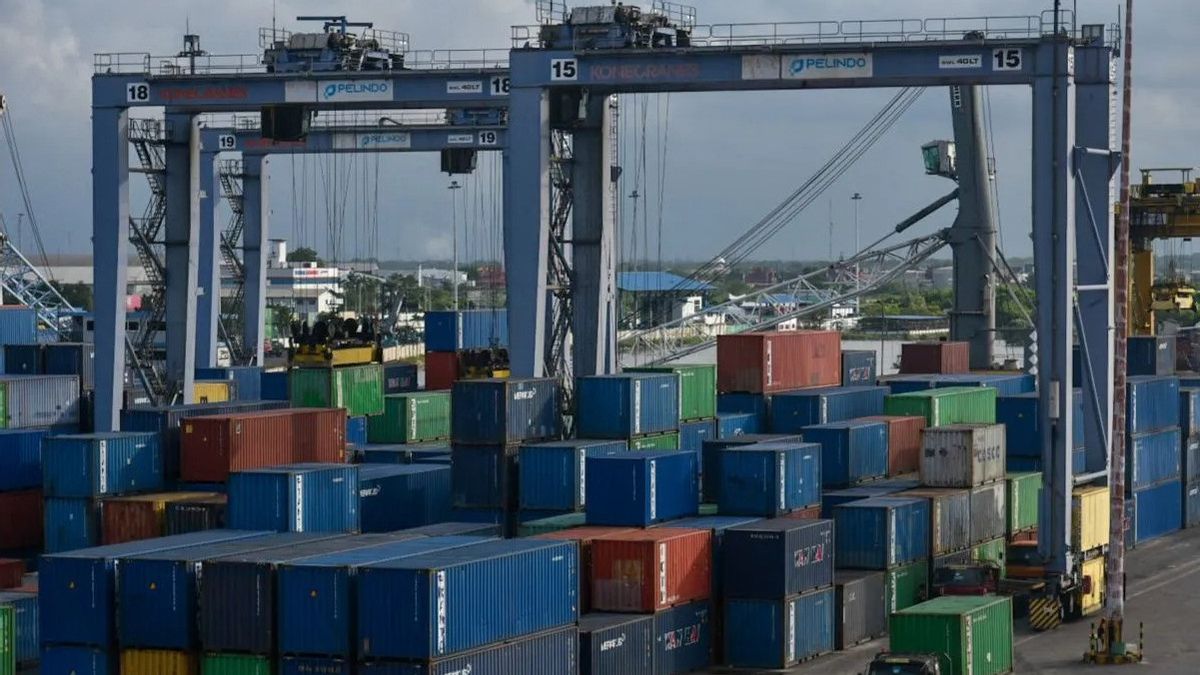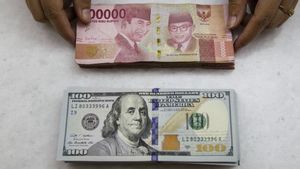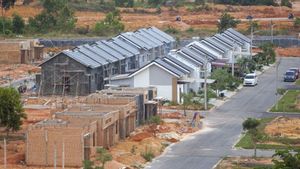JAKARTA - The Indonesian economy is facing a number of increasing global pressures. The re-election of Donald Trump as President of the United States raises concerns regarding protectionism policies, especially in the form of increasing import rates.
Trump's import tariff policy has the potential to have a major impact on Indonesia's exports to the US, which is one of our main trading partners, said Senior Economist Masyita Crystallin in a statement, Sunday, November 24.
In addition, Masyita conveyed that the trade war between the European Union and China regarding electric vehicles has exacerbated tensions in world trade, which has the potential to affect global markets, including Indonesia.
To note, the World Bank projects that economic growth in developed countries will only start to increase in 2025, with a projection figure of 1.7 percent, but still stagnant at 1.5 percent for 2024, which is equal to last year's figure. This is also happening in Indonesia, which is expected to grow 5.1 percent by 2025, after stagnant at 5 percent by the end of 2024.
On the other hand, developing countries are expected to stagnate at 4.0 percent for this year and next year, lower than 2023 which was recorded at 4.2 percent.
"This global uncertainty is a signal for Indonesia to accelerate structural reforms and strengthen sustainable green development strategies," Masyita explained.
SEE ALSO:
As a strategic step, the Indonesian government has included energy efficiency, environmentally friendly transportation development, and the implementation of the circular economy in the 2025-2045 National Long-Term Development Plan (RPJPN) to face this challenge.
On the monetary side, Bank Indonesia (BI) maintains economic stability by maintaining the benchmark interest rate at the level of 6 percent, although previously it had lowered it by 25 basis points in September.
Masyita said that inflation continues to decline as an indication of people's weak purchasing power, which needs more attention so that economic growth can be maintained.
"The decline in inflation must be balanced with policies that support people's purchasing power and encourage more inclusive economic growth," said Masyita.
The market is now waiting for BI's decision to cut interest rates further, given the trend of weakening inflation since the beginning of the year. Masyita also reminded the importance of more targeted policies to maintain economic stability in the midst of uncertain global situations.
Meanwhile, Masyita said that the reduction in the rupiah exchange rate in the last few weeks needs to be watched out for. The world's currency exchange rate moves in a limited space, some even experiencing strengthening, as happened to the Turkish lira and Russian rubles.
"The weakening of the rupiah can affect the continuity of Indonesia's balance sheet and financial balance surplus, which is currently still in a relatively stable position," said Masyita.
However, the latest data shows that the strengthening of the US dollar against the rupiah since late September until now, is approaching its level last August, in the range of IDR 15,900 per US dollar.
Although capital inflows in the third quarter of 2024 were recorded at 7.4 billion US dollars, which showed an increase of 39 percent compared to the previous quarter, Masyita stressed that this was not enough to overcome the negative influence of changes in global conditions.
"Most of the incoming capital flows come from equity, with a total of nearly 100 percent of that amount, while the debt only accounts for 49 million US dollars," he explained.
Capital outflow was recorded at 2.2 billion US dollars, which should also be a concern. "The domestic market sentiment towards BI remains positive in holding interest rates at 6 percent, but this is not enough to beat international market sentiment towards the Fed, which is thought to have run out of ammunition to lower interest rates further," Masyita said.
Although challenges from abroad are increasingly evident, Masyita conveyed that Indonesia's strong trade relationship with China and ASEAN countries still provides strategic opportunities to encourage Indonesia's economic growth.
According to Masyita, Indonesia must take advantage of strong trade relations with ASEAN and China to reduce the negative impact of global trade tensions.
"This strong relationship with ASEAN and China can be the key to the Indonesian economy in maintaining resilience in the midst of the growing global dynamics," concluded Masyita.
The English, Chinese, Japanese, Arabic, and French versions are automatically generated by the AI. So there may still be inaccuracies in translating, please always see Indonesian as our main language. (system supported by DigitalSiber.id)
















